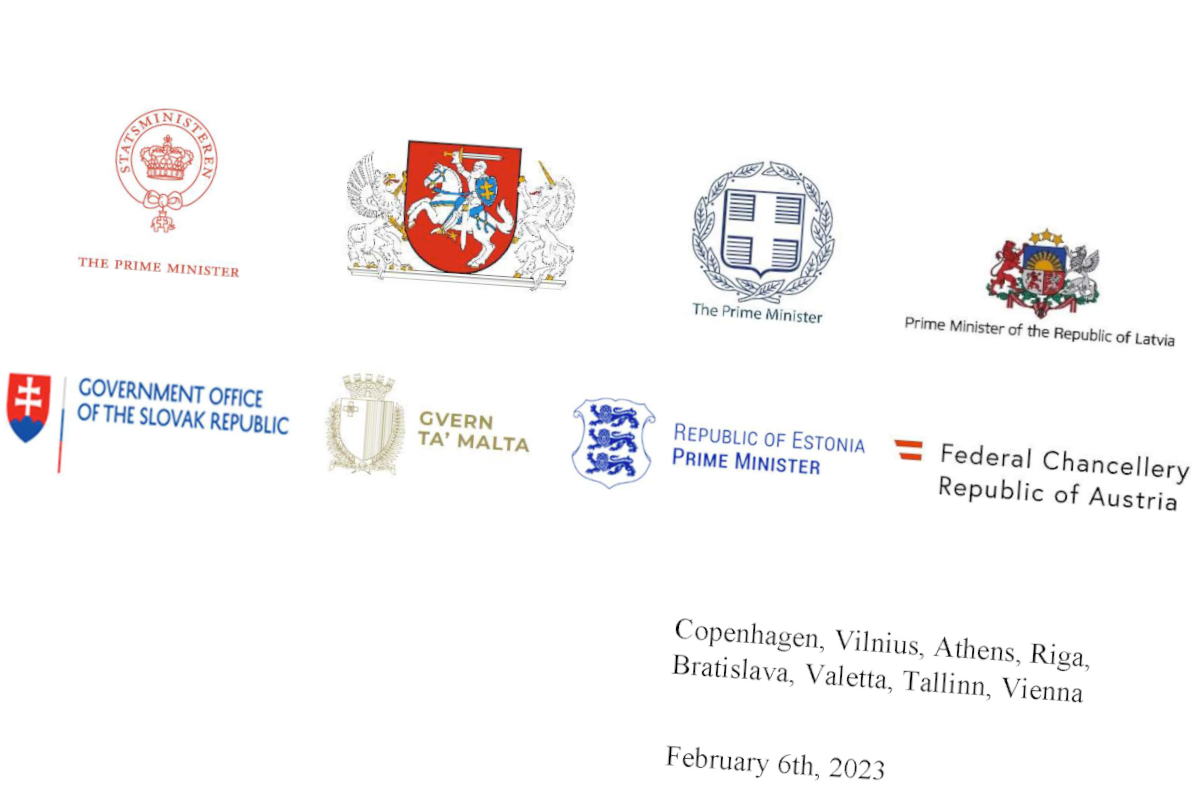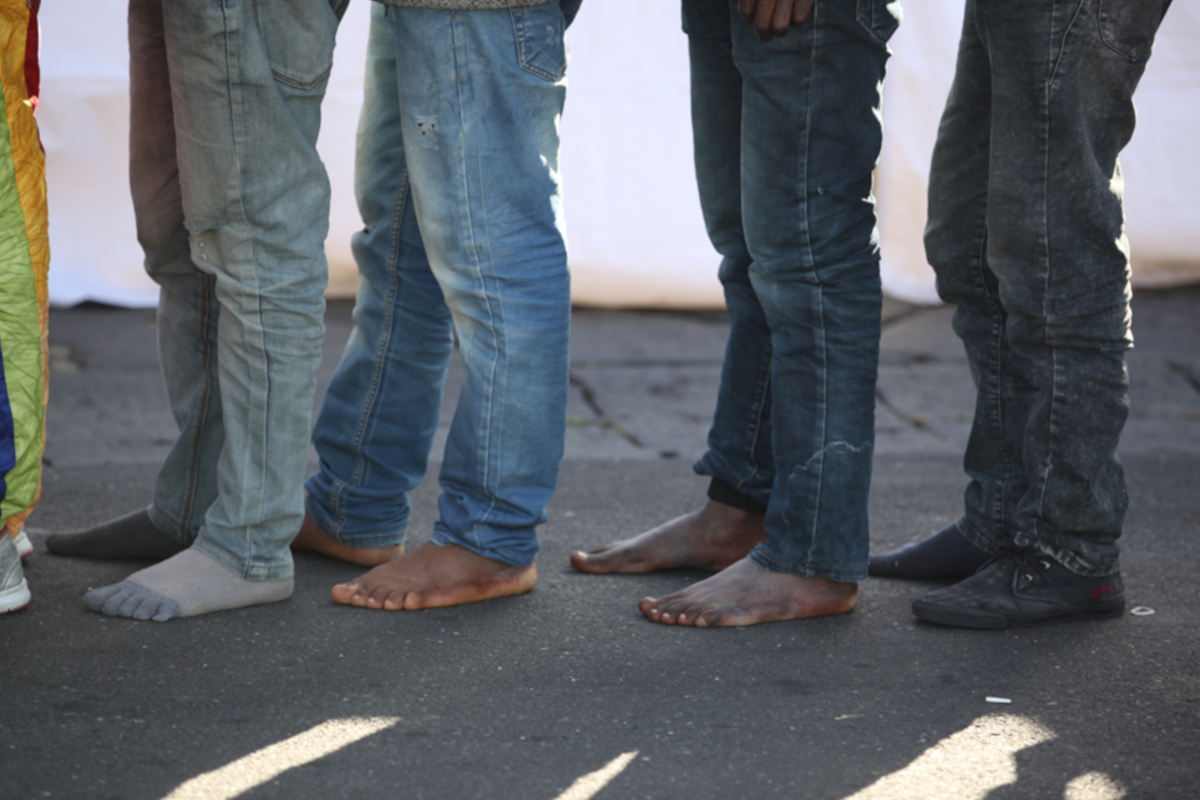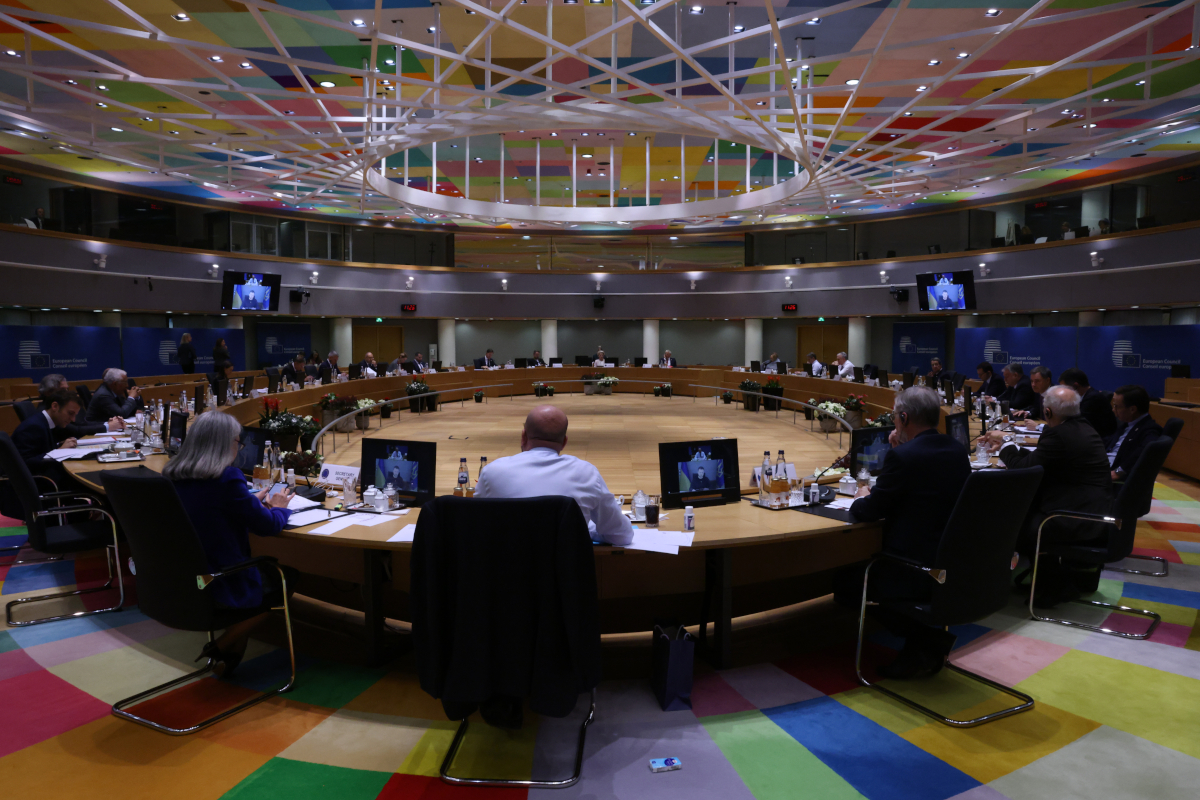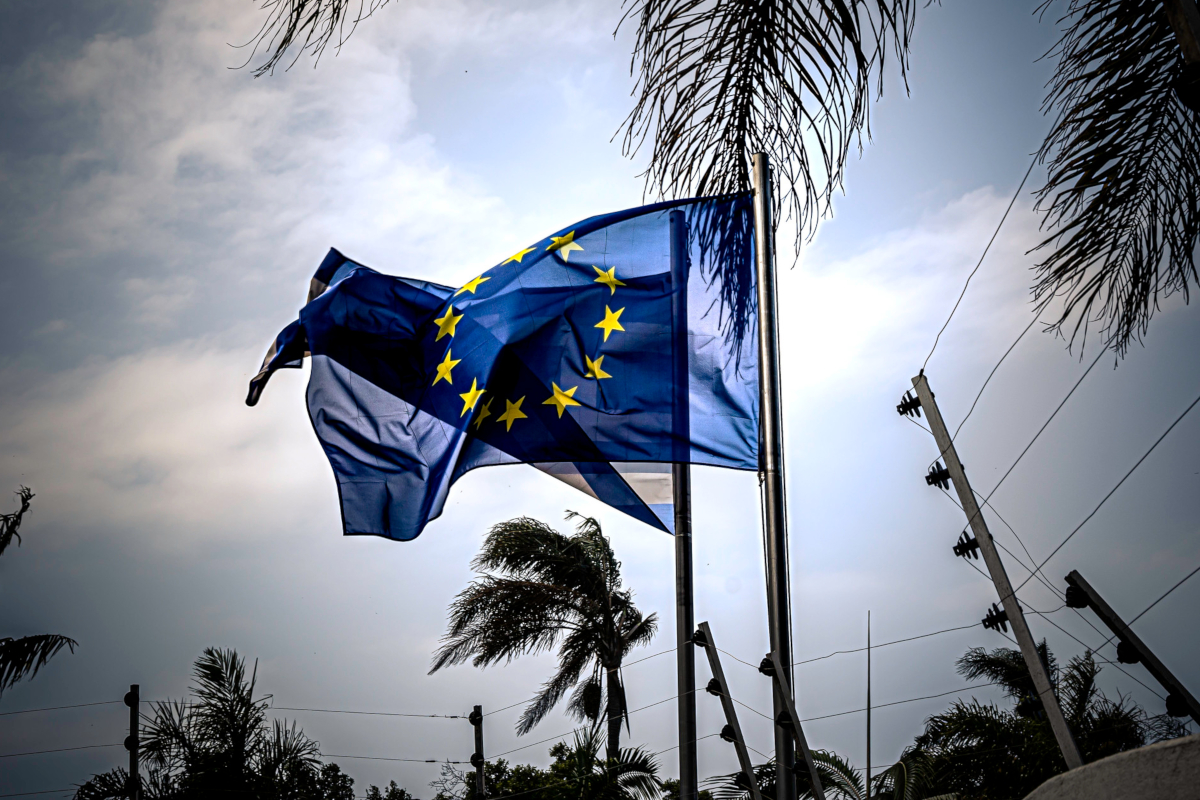News
Launched in 1999 and updated regularly, Statewatch News includes our own reporting and writing as well as articles, announcements, documents and analyses from elsewhere on civil liberties, EU policies and state practices. You can receive updates in your inbox by signing up to our mailing list, or use our RSS feed to get instant alerts.

Eight states appeal to European Council: more fortification, deportation, externalisation, and "strategic communication"
The call comes in a letter signed by the prime ministers of Austria, Denmark, Estonia, Greece, Lithuania, Malta, Latvia and Slovakia that argues "the current asylum system is broken and primarily benefits the cynical human smugglers who take advantage of the misfortune of women, men and children."

EU preparing new efforts to increase Libyan border controls
A draft “action file on Libya” is circulating within the Council of the EU. A version from January obtained by Statewatch indicates that there will be a fresh push to improve the ability of authorities in Libya to control the country’s southern borders and to prevent refugees from leaving the country by sea.

EU: Interoperable migration and police databases: a data trove for Frontex
The EU’s border agency, Frontex, will be able to access vast quantities of data once the EU’s ‘interoperable’ policing and migration databases are fully operational. In particular, its access to extensive new sets of statistics is intended to increase the detail, influence and reach of its risk analyses and policy recommendations.

Tarajal Manifesto 2023: justice for the dead
Today, the 10th March For Dignity will take place in Ceuta to commemorate and demand justice for the 14 people who died attempting to cross the border into Spain on 6 February 2014. The Tarajal Manifesto 2023 has been produced to mark the occasion.

“If I had known he was in the police, I would never have got involved with him.”
Clara is an anarchist activist, member of La Cinètika and involved in the scout movement. She was in a year-long relationship with Daniel Hernández Pons, recently unmasked as an undercover police officer infilitrating social movements in Barcelona.

Second undercover police officer spying on Barcelona activists unmasked
An officer of the Spanish National Police Corps infiltrated activist groups in Barcelona over a three-year period, joining the social centre La Cinétika in 2020 and initiating sexual relationships with women that facilitated his participation in assemblies, events and demonstrations.

EU: Tracking the Pact: Only 207 refugees relocated so far via “voluntary solidarity mechanism”
The solidarity is voluntary, and there’s not enough of it to go around. Six months ago the EU established a “voluntary solidarity mechanism” for relocating refugees from states such as Italy, Greece and Malta. Now an internal Commission paper states that the entire scheme could be in jeopardy due to a failure by other EU member states to actually accept people for relocation. So far, only 207 people have benefited from the scheme.

"Increased external action" against migration: draft European Council conclusions
On 9 and 10 February the European Council will meet to approve conclusions on the Russian invasion of Ukraine, the economy and migration. A draft version of the conclusions, published here, reinforces longstanding calls to increase the externalisation of migration controls.

Public hearing at Dutch court over police surveillance of activist
Frank van der Linde is a Dutch political activist who has spent five years trying to find out exactly what information the police hold on him and why. On 30 March, he will ask the Court of Amsterdam to order an external independent institution to carry out a forensic examination of the Dutch police database, with the aim of guaranteeing his right to access his personal data. The ruling will have an impact not just in the Netherlands but across the EU.

UK: Draconian anti-strike legislation is unnecessary and gives vast power to government ministers
The UK government's proposed Strikes (Minimum Service Levels) Bill is being rushed through parliament. It will allow the government to force employees in certain public roles to go to work through the imposition of "work notices" when faced with strike action. A letter to the Minister for Business, Energy and Industrial Strategy, Grant Schapps, calls for a halt to the "plans for an unwarranted curtailment of freedom of assembly and association." Coordinated by Liberty, it has been signed by 50 organisations, including Statewatch.

UK: Police and intelligence agencies to increase joint work, with reduced privacy safeguards
The Data Protection and Digital Information Bill will degrade privacy and data protection safeguards in policing. Under certain conditions, law enforcement agencies (LEAs) will be able to circumvent rights protections by acting with the same powers as intelligence agencies. Laws safeguarding personal data during transfers will be diluted and the means for oversight will be significantly reduced.

EU: Travel surveillance: member state comments on "improving compliance" with court ruling
Last June the EU's Court of Justice massively restricted the scope of the Passenger Name Record (PNR) Directive, which allows the mass surveillance and profiling of air passengers. According to the ruling, member states should make substantial changes to their practices in order to uphold fundamental rights. Instead, they would like to find ways to maintain maximum data collection to continue the hunt for "persons of interest" - yet such practices are incompatible with the rule of law.

Council of Europe Convention on Artificial Intelligence: zero draft and member state submissions
The Council of Europe is working on a Convention on Artificial Intelligence, Human Rights, Democracy and the Rule of Law. Drafting is ongoing on what will be the first international convention on the issue of AI. Civil society organisations have been excluded from the process at the behest of the USA. We are publishing the “zero draft” of the Convention, the draft risk assessment methodology and comments on the draft from a number of member states, Council of Europe committees, corporations and civil society groups.

UK: Stop the Public Order Bill
Having failed to get through a number of anti-protest measures in last year's Police, Crime, Sentencing and Courts (PCSC) Act, the government is now seeking to put them on the books through the Public Order Bill, which is being discussed in the House of Lords. A new briefing drafted by Liberty and signed by 74 civil society organisations, including Statewatch, calls on peers "to defend protest rights and support amendments to mitigate the Public Order Bill’s worst effects." These include "Serious Disruption Prevention Orders" that would make it possible "to ban named individuals from protesting, associating with certain people at certain times, and even using the internet in certain ways."

Tracking the Pact: Unaccountable new decision-making bodies and "adaptable responsibility"
The latest Council draft of the Asylum and Migration Management Regulation (AMMR) includes a substantial number of changes, including the introduction of the concept of "adaptable responsibility" and an array of new bodies dominated by the member states intended to govern the implementation of EU migration policy.

Every driver a border guard: 500% increase in fines for carrying “clandestine entrants” into the UK
As part of the controversial package of reforms in the Nationality and Borders Act 2022, the UK government plans to toughen up penalties in the Clandestine Entrant Civil Penalty Scheme, with one type of fine set to increase by up to 500%.

Police practices of border control: one year of pushbacks and denial of rights at the French-Italian border
Press release published by Tous Migrants, 18 January 2023. A new report exposes and denounces abusive practices by border police in the Briançon area.

EU to provide training on “covert techniques” to abusive police forces
The European Police College is to train a host of states with miserable human rights records on the use of “covert techniques in forensics and mobile telecommunications” and will provide “training activities related to cyber-attacks in order to build capacities for law enforcement, judicial authorities and other relevant bodies.”

EU: Democracy as a problem for deportations
In a "non-paper" circulated last April, the European Commission admitted that informal readmission arrangements are preferred to formal readmission agreements for a number of reasons - including the "possibility to keep the arrangement confidential."

EU: Tracking the Pact: Civil-military "synergies" for external migration control
In early December the Czech Presidency of the Council circulated a note on the "state of play" of the EU's various asylum and migration initiatives, intended to inform member state delegations in the Committee of Permanent Representatives (COREPER). It is essentially a brief summary of work under the outgoing Czech Presidency. According to the note, this included the exploration of possible civil-military "synergies" in externalised migration control, through a meeting of the Council's External Migration Working Party with representatives of EUCAP Sahel Niger and EUBAM Libya.
Spotted an error? If you've spotted a problem with this page, just click once to let us know.